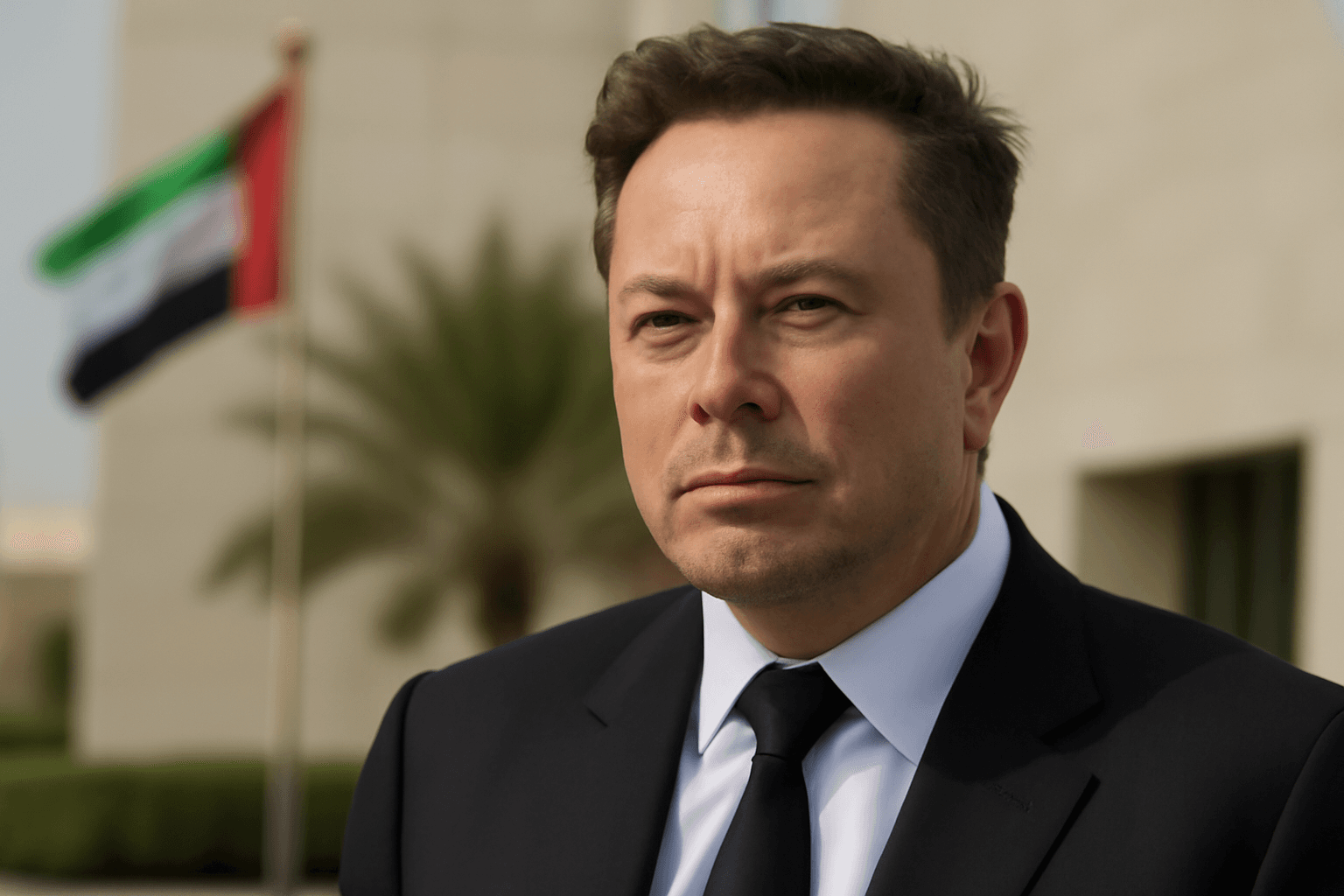Elon Musk reportedly attempted to obstruct a significant artificial intelligence (AI) infrastructure agreement in the Middle East after learning that his startup, xAI, was excluded from the initiative. This development was confirmed by a source familiar with the situation to CNBC, following earlier reports from the Wall Street Journal.
Earlier this month, OpenAI, Oracle, Nvidia, Cisco, and Emirati firm G42 announced plans to establish the Stargate AI campus in the United Arab Emirates (UAE), a large-scale AI infrastructure project. Musk expressed frustration that OpenAI, led by his longtime rival Sam Altman, was selected to lead the deal and sought to get xAI involved.
According to a source, Musk contended that then-President Donald Trump would not approve the agreement if xAI was excluded. The announcement was delayed for several days due to pushback from Musk, drawing attention from various stakeholders, including the White House, amid Musk's ongoing public and legal disputes with Altman and OpenAI.
The Wall Street Journal was the first to report Musk’s efforts to block the agreement.
White House Press Secretary Karoline Leavitt provided a statement to CNBC, emphasizing the deal’s importance but without referencing the controversy. She said, "The United States and the UAE signed a groundbreaking framework agreement establishing the first AI acceleration partnership," and highlighted the framework's role in advancing AI infrastructure in both countries. She credited President Trump and his team for the deal.
Musk was not present in the UAE when the deal was signed but accompanied President Trump during an earlier visit to Saudi Arabia, according to a senior White House official. The official noted that Musk communicated concerns about ensuring fair treatment of all AI companies by the government.
OpenAI declined to comment on the matter, and Musk did not respond to CNBC’s requests for comment.
Musk, who also leads Tesla and SpaceX, has complicated Trump's efforts to strengthen U.S. leadership in AI. Having invested nearly $300 million to support Trump's return to the White House, Musk has since headed the Department of Government Efficiency (DOGE), reducing federal employment. His role as a special government employee is set to conclude this month.
In recent years, Musk has been a vocal critic of Altman, despite their previous collaboration in founding OpenAI as a research lab in 2015. Musk distanced himself from OpenAI and frequently criticizes its organizational setup and partnership with Microsoft.
While Musk’s companies advance their AI initiatives—Tesla recently launching its own chatbot and integrating Grok, developed with Telegram on Musk’s social media platform X—he continues efforts to prevent OpenAI's transition to a for-profit model. Musk has pursued legal action against OpenAI for breach of contract and led an investor group that unsuccessfully attempted to buy the startup for $97.4 billion in February.
This is not the first time Musk has challenged the Stargate project. In January, President Trump announced the Stargate initiative with $100 billion to $500 billion in planned AI infrastructure investment over four years involving OpenAI, Microsoft, and SoftBank. Musk publicly questioned the financing validity of the project, suggesting SoftBank had committed far less.
Subsequently, SoftBank finalized a $40 billion investment in OpenAI at a $300 billion valuation, countering Musk’s earlier skepticism.
The ongoing rivalry between Musk and Altman continues to influence high-profile AI collaborations and U.S. strategic partnerships in the Middle East, reflecting broader tensions within the AI sector.
— Reporting by CNBC and contributions from Eamon Javers.

